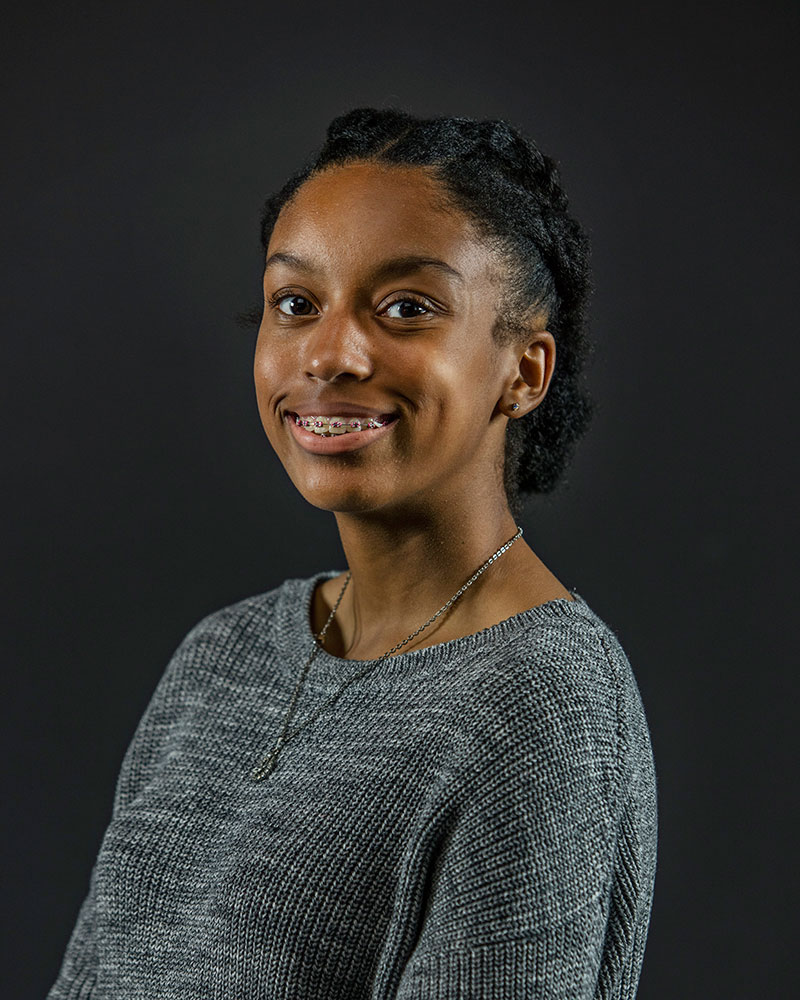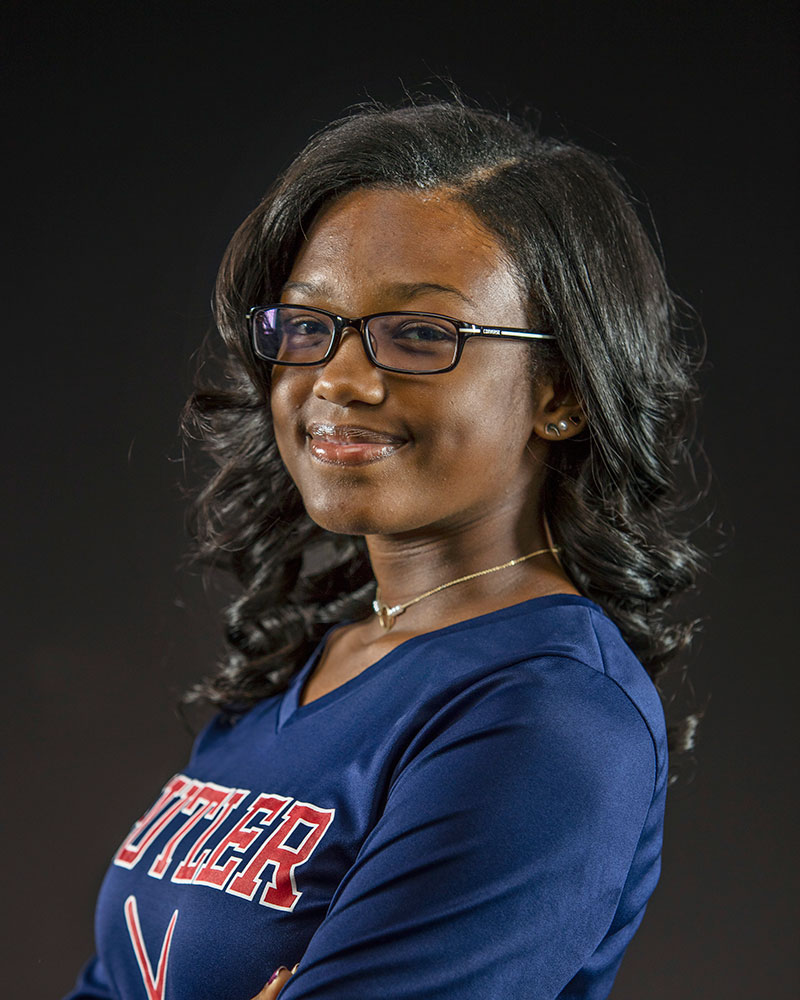By Barbara Myerson Katz
Photos by Chris Witzke
Too long, too short, too messy, too weird. Teenagers and their hairstyles have always driven parents and teachers to distraction. For schools with codes governing student appearance, squaring conventional notions of proper deportment with desires for self-expression can be tricky. In July, a controversy over hairstyle rules at Jefferson County’s Butler Traditional High School flared, drawing national attention.
Like the site-based decision-making councils in all Kentucky public schools, Butler’s, made up of the principal plus peer-elected teachers and parents, can establish policies on student behavior and appearance, including hairstyles. A JCPS traditional school, Butler has long had a strict dress code, noting in its student handbook that “students’ academic success is directly correlated to appropriate attire and appearance.”
It was a new prohibition on specific styles — dreadlocks, cornrows, twists, mohawks, jewelry in the hair, and no braids for males — that sparked the controversy. JCPS deputy communications director Jennifer Brislin says the policy was always intended to apply only to males. Regardless, some students and parents voiced concerns that hairstyles favored by black students of both genders were being singled out. Students and parents voiced their concerns at an SBDM meeting, and a new policy that no longer bans the hairstyles in question was unanimously approved.The controversy attracted the attention of students at other JCPS high schools too. Jalen Posey, 16, a junior at Central, says, “Most black people feel ashamed to embrace their natural hairstyles, and that all goes back to slavery and our psychological conditioning...that white is good and black is bad. You are beautiful just as you are. There’s no need for an African to try to emulate a European standard of beauty."
Butler parent Attica Scott believes the original policy that banned traditionally African-American hairstyles reflected “institutional racism” and a lack of sensitivity on the part of the SBDM council, despite the fact that Butler principal William Allen and two parent members of the committee are themselves black. (According to the Kentucky Department of Education, approximately 36 percent of Butler’s students are African-American.) As the unopposed Democratic nominee for the 41st District seat in the Kentucky State Legislature, Scott will become in January the first African-American woman elected to the House in 20 years. She says she appreciated the engagement of students and parents and the quick response of Allen and the SBDM once concerns were expressed.
Whether the hairstyle squabble revealed unintended discrimination or simply personal-appearance resolve, we wanted to know why it was important to the students themselves.

Chayla Ford
15, sophomore
“I felt as if there’s always limitations, especially on teenagers, and society’s decided to tell you how you should look, how you should dress, how you should wear your hair. School should be a place where you should be able to go to learn. It shouldn’t matter what you look like, what you have on, how you wear your hair. If your hair is distracting someone, it’s that person’s issue. I took it kind of personally. I used to get teased about the way I wore my hair. In elementary school, all the other girls had straight hair, or they did have curly hair and their mothers put a perm in it to make their hair straight, and I was the only one — my mother wouldn’t let me get a perm. She wanted me to embrace my curls. I’ve learned to embrace them.”

Ashanti Scott
15, sophomore
“I feel like I’m expressing myself, and I’m embracing my hair by not wearing it straight every day. I’m doing what I want with my hair and what other people who look like me, who are black like me, are doing with their hair.”

Jaela Story
15, sophomore
“I usually have my hair braided because of sports. Natural hair takes a lot to do and it’s hard to take care of. The way we wear our hair is a way to express ourselves. We already look alike: We wear the same uniforms, the same colors, the same pants, the same shirts. The only thing different is our shoes and our hair. I don’t think anybody wants to look like somebody else. Everybody wants to look like their own person.
This originally appeared in the November 2016 issue of Louisville Magazine. To subscribe to Louisville Magazine, click here. [4] To find your very own copy of Louisville Magazine, click here. [5]

